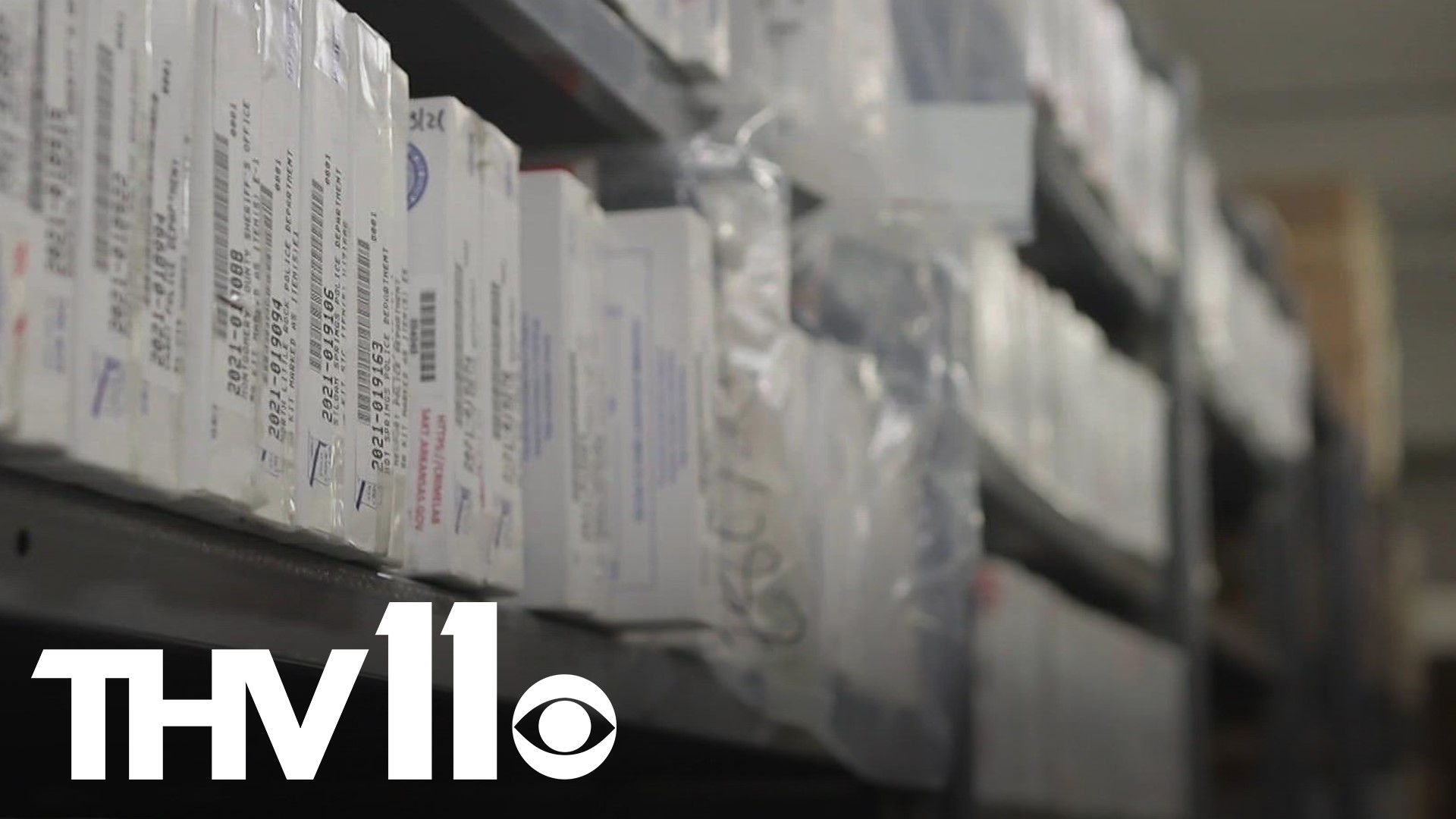LITTLE ROCK, Ark. — Despite the state's latest efforts to clear a growing backlog in sexual assault test kits, thousands of kits have still been sitting on shelves inside of the Arkansas State Crime Laboratory.
According to a report by the Arkansas State Crime Laboratory, there were 2217 untested kits in Arkansas in 2016.
In 2019, Arkansas passed Act 839 which was a big step in working to increase the transparency for victims and to try and prevent the backlog from happening again.
Though it is now three years later, the backlog has still not been cleared.
"It's not where we need to be,” Kermit Channell, Director of the Arkansas State Crime Laboratory said.
We have been following this story for nearly a decade, and have documented the progress that the state has made in clearing the backlog of sexual assault kits.
Channell commented that when Act 839 was first passed, the lab had a total of 461 untested kits.
Three years later, that number has since increased to 567 untested kits that are still sitting on a shelf.
Channell explained there are many factors that have contributed to why the crime lab hasn't been able to get caught up— and he’s looking forward to increased support and resources from state officials to assist in the problem.
He has hopes that increased resources can continue to provide survivors with the answers they need.
"I can't imagine, but the last thing I would want is for a victim, or a survivor of sexual assault to have that kit taken, and that kit sits there, and she's ignored, or she's not believed,” Channell said.
One of the main issues that they have faced is the constant flow of test kits that the crime lab receives.
"I think we're always seeing an uptick in the number of sexual assault cases that are coming into the lab,” he explained.
Channell added that the crime lab consistently receives more than 800 new sexual assault test kits a year, and it has been that way over the course of the past 3 years— He also commented that it has made it difficult to focus on clearing the backlog.
Josie Graves, a survivor of sexual assault, said she was raped at the age of 4, 14, during undergrad, and during law school— And all of those happened in Arkansas.
She said her sexual assault test kit has been processed, but as a sexual assault survivor, she remains concerned for those still awaiting results.
"As a survivor, it gives you the feeling that what happened to you isn't being prioritized, and that your safety and your traumatic experiences aren't being prioritized,” Graves described.
Act 839 was enacted to specifically fix issues like those.
The law requires law enforcement to submit a sexual assault test kit for processing within 15 days of receiving it. Then, the lab has 60 days from that time to test and complete it.
The crime lab explained that they are nowhere near meeting that goal, and the current turnaround time for the kits is actually 8 months, instead of 60 days.
"I'm not going to be happy with that until we reach 60 days. I would love to have 30, but 30 is very hard,” Channell said.
Having prolonged test kits sitting on shelves in the crime lab is very harmful to a survivor’s recovery, Graves added. She went on to comment on how it also takes a lot of strength to even get tested in the first place.
"A rape kit is supposed to be for you and your benefit, but it still feels like you're being violated all over again,” she said.
She also explained that you're continually anxious and waking up just wondering how the process will turn out.
Graves shared that this anxiety and “waiting game” takes an emotional toll on survivors, and it's oftentimes on the heels of them experiencing the most traumatic event of their lives.
"To think that you could be walking around with your assailant on the same streets as you, that's appalling,” she said. “To think that person could be out revictimizing other people because it's not just you,” she said.
The crime lab has acknowledged there's work to be done, but it's not just a rise in new cases that has been preventing them from dealing with the backlog.
Chanell said that understaffing is also a major contributor to this problem.
"To address that, the Governor has given us 5 new DNA positions that we're currently trying to fill. We've filled some, but we're not getting a whole lot of applicants,” Channell said.
Channell explained that it's not easy to become a DNA forensic scientist, due to extensive coursework, and training, which can take up to a year to complete.
Once that is completed, it takes a while before a new hire can ever touch a case.
He went on to share that even after training, the starting salary for this position is around $47,000.
"We're not fully staffed at all. I have 6 people right now in training so I'm still trying to fill some other positions, but when we have those on board, I think we'll be right where we need to be,” he said.
Channell stated the lab has lost 7 DNA analysts since over the last few years for various reasons.
Now, the crime lab has begun to look into providing other incentives to attract qualified candidates, such as increasing the starting pay for the position.
Until then, hundreds of survivors could be left waiting for answers, and waiting for the closure these processed test kits can bring.
“It’s harder to work on yourself when other people don't think that your healing is just as important as well,” Graves said.
Channell also said the crime lab will continue to be “victim-centered” and he has taken on the challenge to get the backlog cleared.

